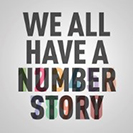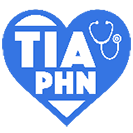Adverse Childhood Experiences (ACEs)

Childhood trauma isn’t something you just get over as you grow up. The repeated stress of abuse, neglect and parents struggling with mental health or substance abuse issues has real, tangible effects on the development of the brain. This unfolds across a lifetime, to the point where those who’ve experienced high levels of childhood trauma are at much higher risk for chronic diseases like heart disease and diabetes.
Learn More About ACEs
 “Adverse Childhood Experiences are the single greatest unaddressed public health threat facing our nation today” -Dr. Robert Block former president American Academy of Pediatrics
“Adverse Childhood Experiences are the single greatest unaddressed public health threat facing our nation today” -Dr. Robert Block former president American Academy of PediatricsWatch this video about the effects of ACEs: Adverse Childhood Experiences (ACEs): Impact on brain, body and behavior, from IHDCYH Talks Canada
 Learn the basics about Adverse Childhood Experiences in this ACEs Primer Video from KPJR Films.
Learn the basics about Adverse Childhood Experiences in this ACEs Primer Video from KPJR Films.  Our ACE history counts experiences of abuse, neglect and household challenges that happened to us as children. But that number does not define us. It is simply an entry point to our own personal story. The Number Story initiative offers interactive learning tools in English and Spanish.
Our ACE history counts experiences of abuse, neglect and household challenges that happened to us as children. But that number does not define us. It is simply an entry point to our own personal story. The Number Story initiative offers interactive learning tools in English and Spanish. Hear more about ACEs from former California Surgeon General, Dr. Nadine Burke Harris in her TED Talk.
Hear more about ACEs from former California Surgeon General, Dr. Nadine Burke Harris in her TED Talk. Taking our ACE history can be a powerful first step to understanding our stories, healing ourselves, and helping the children in our lives. Complete the ACEs Questionnaire in English
Taking our ACE history can be a powerful first step to understanding our stories, healing ourselves, and helping the children in our lives. Complete the ACEs Questionnaire in English Tomar nuestro historial ACE puede ser un primer paso muy poderoso para entender nuestra historia, sanarnos, y ayudar a los niños en nuestras vidas. Complete el Cuestionario ACE en español
Tomar nuestro historial ACE puede ser un primer paso muy poderoso para entender nuestra historia, sanarnos, y ayudar a los niños en nuestras vidas. Complete el Cuestionario ACE en español
Prevention, Support and Healing from the effects of ACEs
![]() Find Providers in your area trained and certified to provide ACEs screenings and referrals on the ACEs Aware Provider directory. For Providers, if you are not already using ACEs questionnaires, the ACEs Aware website provides free training on assessments and information regarding Medi-Cal reimbursement.
Find Providers in your area trained and certified to provide ACEs screenings and referrals on the ACEs Aware Provider directory. For Providers, if you are not already using ACEs questionnaires, the ACEs Aware website provides free training on assessments and information regarding Medi-Cal reimbursement.
![]() Sonoma County Behavioral Health offers support for persons affected by ACEs.
Sonoma County Behavioral Health offers support for persons affected by ACEs.
 The Field Nursing Trauma Informed Approach in Public Health Nursing (TIA PHN) team make home visits to income eligible pregnant women and families parenting a child under 5 years of age. Nurses provide ACEs, child brain development, and toxic stress education, depression screenings, and developmental assessments for infants and children. We work with clients to help identify and reduce barriers to medical care, and assist clients in accessing community-based resources, while providing education and support for creating a safe, stable and nurturing environment for children and building health resiliency. To make a referral to this program complete and email the referral form.
The Field Nursing Trauma Informed Approach in Public Health Nursing (TIA PHN) team make home visits to income eligible pregnant women and families parenting a child under 5 years of age. Nurses provide ACEs, child brain development, and toxic stress education, depression screenings, and developmental assessments for infants and children. We work with clients to help identify and reduce barriers to medical care, and assist clients in accessing community-based resources, while providing education and support for creating a safe, stable and nurturing environment for children and building health resiliency. To make a referral to this program complete and email the referral form.
 Translate
Translate